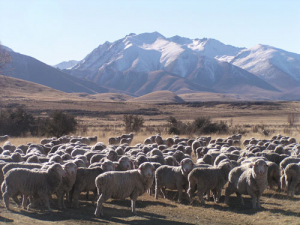The sale of Icebreaker to a United States company could leave the New Zealand merino production industry with too many eggs in one basket.
So says Federated Farmers high country industry group chairperson Simon Williamson of Glenbrook Station.
The US company VF Corporation, which has bought Icebreaker, also owns another major Merino apparel company SmartWool NZ, he told Rural News.
Williamson says the two companies probably add up to a big chunk of where NZ Merino Company (NZM) wool goes; he doesn’t have a figure but estimates it could be about 60% of their Merino wool production.
“We once sold all our wool to Europe, but that all came to a crashing end and if you rely on one market too heavily everyone gets very complacent.”
However, NZ Merino Company chief executive John Brakenridge says the figure of about 60% to the two apparel brands “is wildly inaccurate and shows a fundamental lack of understanding of the industry”.
“The NZ Merino Company works with over 50 different local and international brands to deliver value back to our growers in the form of sustainable, long-term supply contacts, such as the world-first 10-year forward contract with Icebreaker,” he says.
“Federated Farmers would be better suited supporting businesses like NZM in our endeavours to promote natural wool fibre and the building of markets, particularly the opportunities for the wool industry when considering the negative impact synthetics are having on the world.”
Williamson thinks “there is a lot of stuff to go under the bridge” with the Merino industry. “They’ve got two brands that up to now have been competing with one another and now they are both owned by the same company; how do they intend to create a difference? They are all owned by VF Corp.”
He says it may work out when it becomes apparent what they intend to do with the two different brands.
“Will they make Icebreaker into an in-house sports activity type thing and smart wool outdoorsy type stuff? I don’t know; they haven’t come up with that yet.”
Williamson says there are challenges ahead to work through for the whole Merino industry.
“It is not only the sale; I think it has been coming for a while.”
Icebreaker has been buying quite a lot of wool for some time out of Australia, as NZ can’t supply all the Merino wool needed, Williamson says.
“Wool production in NZ is still dropping with the drop in all sheep numbers including Merino. But also with tenure reviews high country farmers are shifting to other breeds. The Australian market production is also half what it used to be.”



















